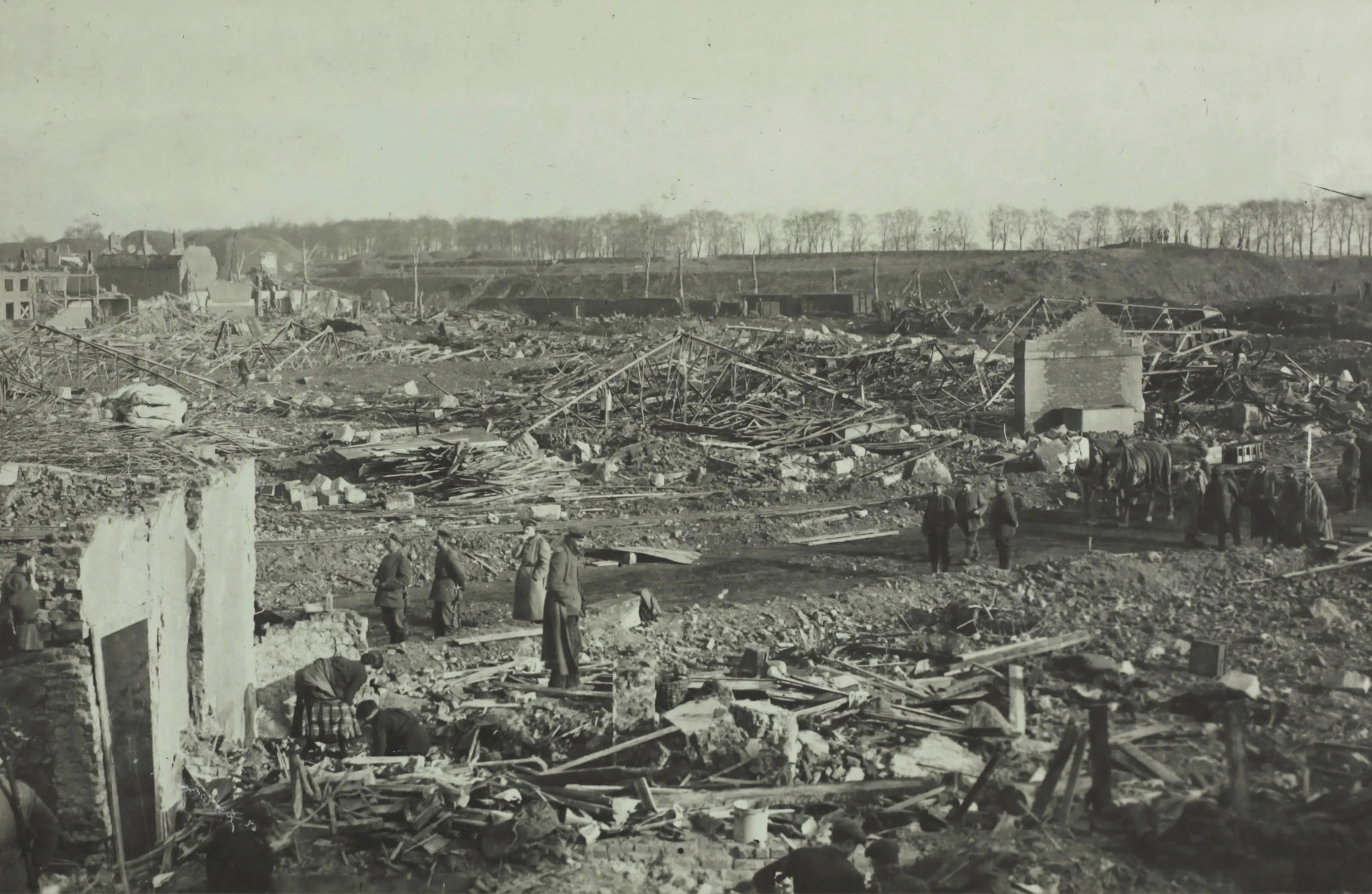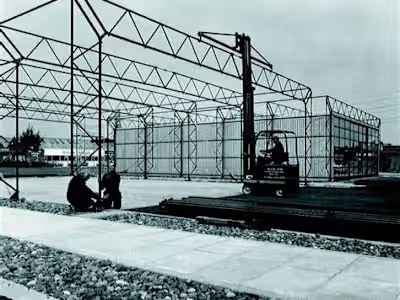Was Homeownership The Rightmove for The Silent Generation?

How can homeownership help or hinder the opportunities available to society?
Exposure to extensive residential damage leads to negative attitudes towards homeownership
The destruction of infrastructure, business and homes leads to economic instability which directly affects the economic behaviour of those impacted
On the other hand, research also shows that homeownership has the capability to reestablish a sense of much-needed security
“Postwar Germany experienced a serious, immediate housing crisis. Fully 22% of the 1939 housing stock in the area that became the Federal Republic was totally destroyed or so badly damaged as to be unsalvageable; another 23% suffered some degree of damage.”
– Diefendorf, Jeffry M.
Following World War Two, the drive to encourage people to reinvest in, and aspire to homeownership is a story that has been heavily chronicled and was largely successful. Owning a home today is perhaps one of the most celebrated milestones anyone can reach in life, particularly today as house prices and mortgage rates soar, adding to the sheer difficulty of even getting a foot on the property ladder.
But not everyone emerged as winners. One generation which bared the full brunt of the Great Depression, World War Two and even the after-effects of World War One are the Silent Generation.
Research by Jonas Happel, Prof. Yigitcan Karabulut, and Prof. Larissa Schäfer from Frankfurt School of Management and Finance, and Prof. Selale Tüzel from USC Marshall School of Business found that members of the Silent Generation (born between 1928-1945) who lived in areas with high levels of destruction are significantly less likely to desire homeownership.
German war General Erich Hampe notes that the immense destruction caused by World War II left approximately four million flats levelled in Germany, leaving 13 million Germans homeless. This great loss of property serves as the genesis of the long-term negative perception of homeownership.
Prior to the war, a significant number of the Silent Generation had acquired or inherited substantial wealth in the form of properties which were ultimately lost during years of conflict and bombing, leading to financial instability. In the years that followed many of the Silent Generation struggled to recover and found themselves unable to provide a deposit for a mortgage to regain their previous homeowner status.
This, the researchers at Frankfurt believe, implemented a fear-factor into the psyche of the Silent Generation. Having directly witnessed their assets be reduced to rubble in the blink of an eye, many opted to reside in smaller homes as a form of damage limitation.
An Offer A Whole Generation Can Refuse?
The mammoth task of swaying the public consciousness and casting a positive light on homeownership was left to the German government, which implemented social schemes to offset this. For example, the Equalisation of Burdens Act of 1952 entailed a 50% tax on the wealth of households and companies, calculated based on their income in 1948. This tax was then redistributed to refugees and those whose assets were destroyed in the war.
Despite this, irreparable damage had already been done as members of the war-exposed cohort would, it seemed, much prefer to enjoy the finer things in life, such as traveling and non-housing commodities. Quite frankly, you can’t blame them for wanting to go against the grain after witnessing destruction on a level we may never see again.
The study conducted by the Frankfurt School of Finance & Management and USC Marshall Business School supports this perspective as 60% of households surveyed stated that travelling is at least as important as homeownership. In addition, 77% of households stated that being able to buy things for themselves is also at least as important as homeownership. This preference gap is significantly larger with war-exposed individuals suggesting they value homeownership relatively less.
On the other side of the pendulum are the Baby Boomers (1946-1964), those born within the German post-war economic miracle. They did not have the same level of trauma as their parents and as a result benefitted more fruitfully from such schemes. According to Björn Egner, the housing benefit Wohngeld was introduced in 1965 to support households that would otherwise not be able to afford housing due to low income or high rents. This allowed many to start re-building the generational wealth that their parents had lost. Something which today’s aspiring homeowners might be grateful for.
In their book “Homeownership and the American Dream,” Laura Goodman and Christopher Mayer argue that housing serves as an excellent means of generating income and is widely recognised as the primary savings instrument for most households. Their study also reveals that when property is acquired with leverage (such as a mortgage), it has the potential to lead to significant asset accumulation.
Even though, many of the Silent Generation harbour relatively negative views towards homeownership. The study conducted by the team at Frankfurt School of Management only revealed a stark few still believed that homeownership can lend people the opportunity to reclaim a sense of security in their lives despite extenuating circumstances.
So, the question is are the silent generation missing out on a plethora of opportunities? According to a further research paper exploring this very topic; “The Long-Term Implications of Destruction During the Second World War on Private Wealth in Germany,” the answer is a resounding yes.
This study demonstrates that war-exposed individuals in more devastated regions tend to accumulate less wealth, stating “Residential destruction caused by the bombardment of Germany during WWII leads to lower housing market participation among exposed households decades later.”
There is a reason why the US housing market crash of 2008 effected people in Europe, Africa, and Asia alike its simply because housing is the concrete that economies are built up from. This highlights the need for the study carried out by the professors as the potential loss of wealth accumulated by these individuals that have seen maybe too much life is on another level.
But despite all there might be to gain, one thing that cannot be quantified is the trauma experienced by individuals whose lives have been profoundly impacted by conflict. The areas that bore the destructive force of war will never be the same again. And, it seems, no matter the size of the carrot dangled in front of them, such perspectives cannot be so easily put aside.
By, Plamedi Mbungu
Want to read more? Why not try this…
Like this project
Posted Jul 30, 2023
Does homeownership provide enough opportunity for those who get on the property ladder? New research considers where the real value may lie
Likes
0
Views
3





